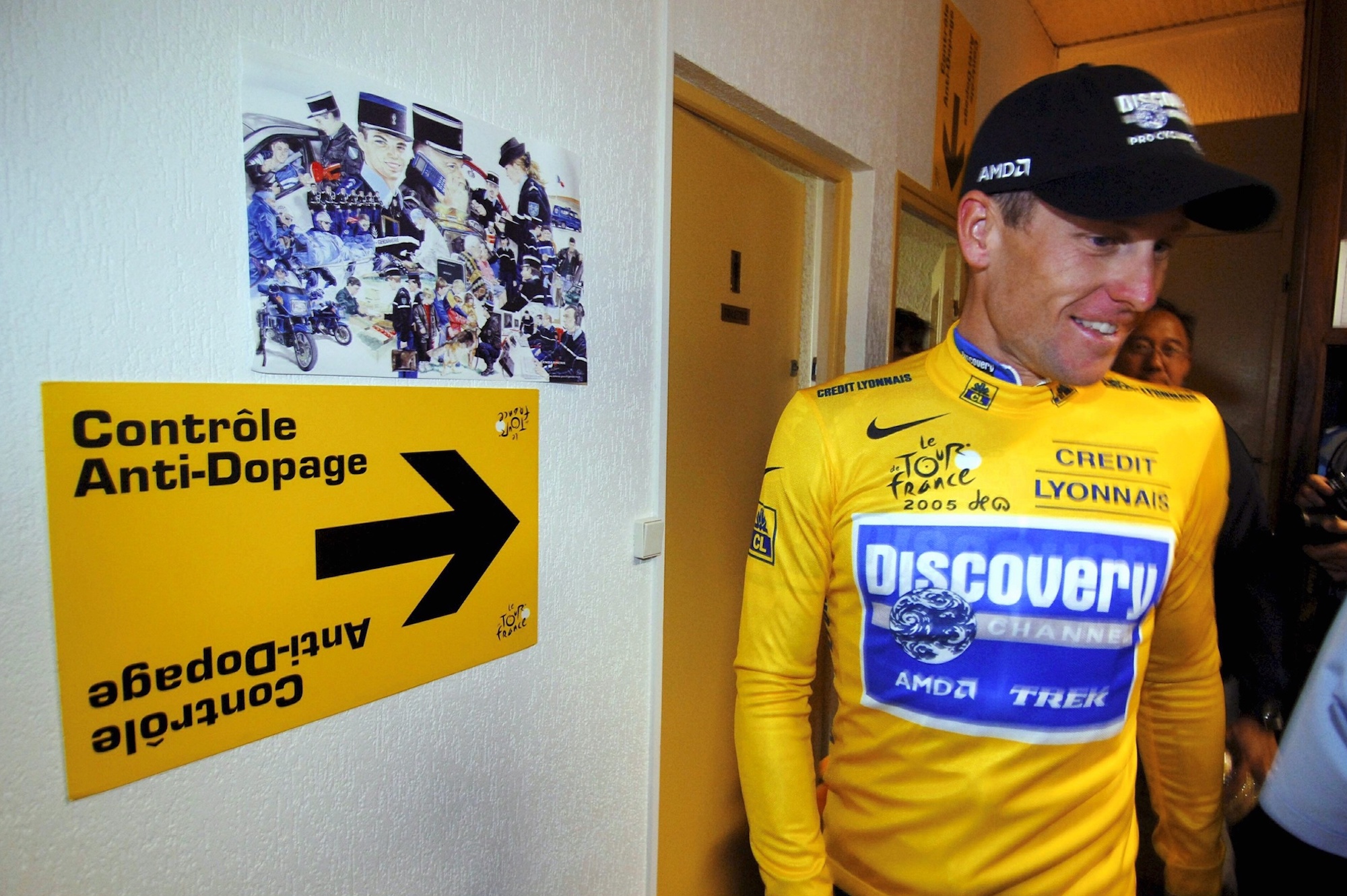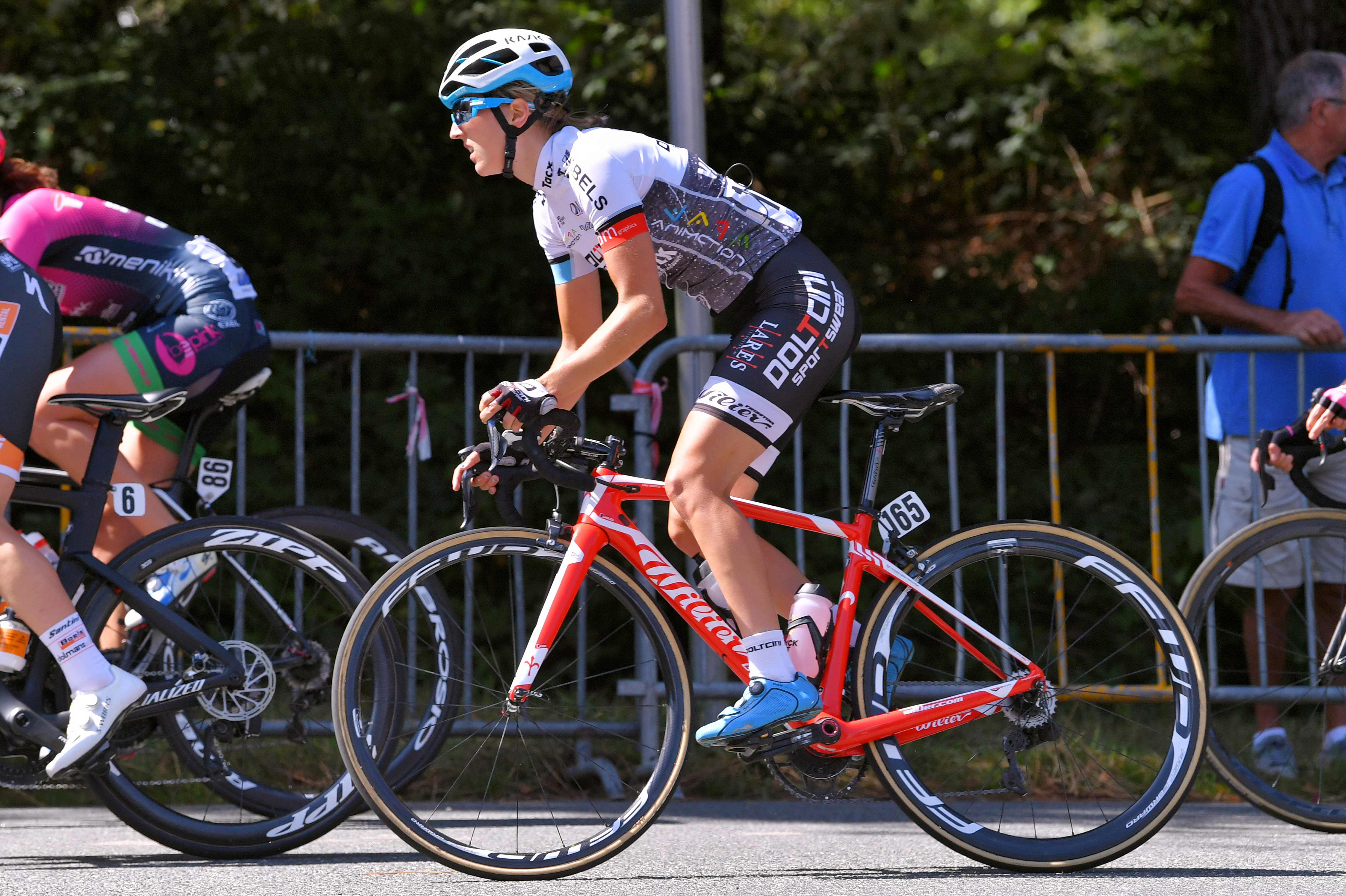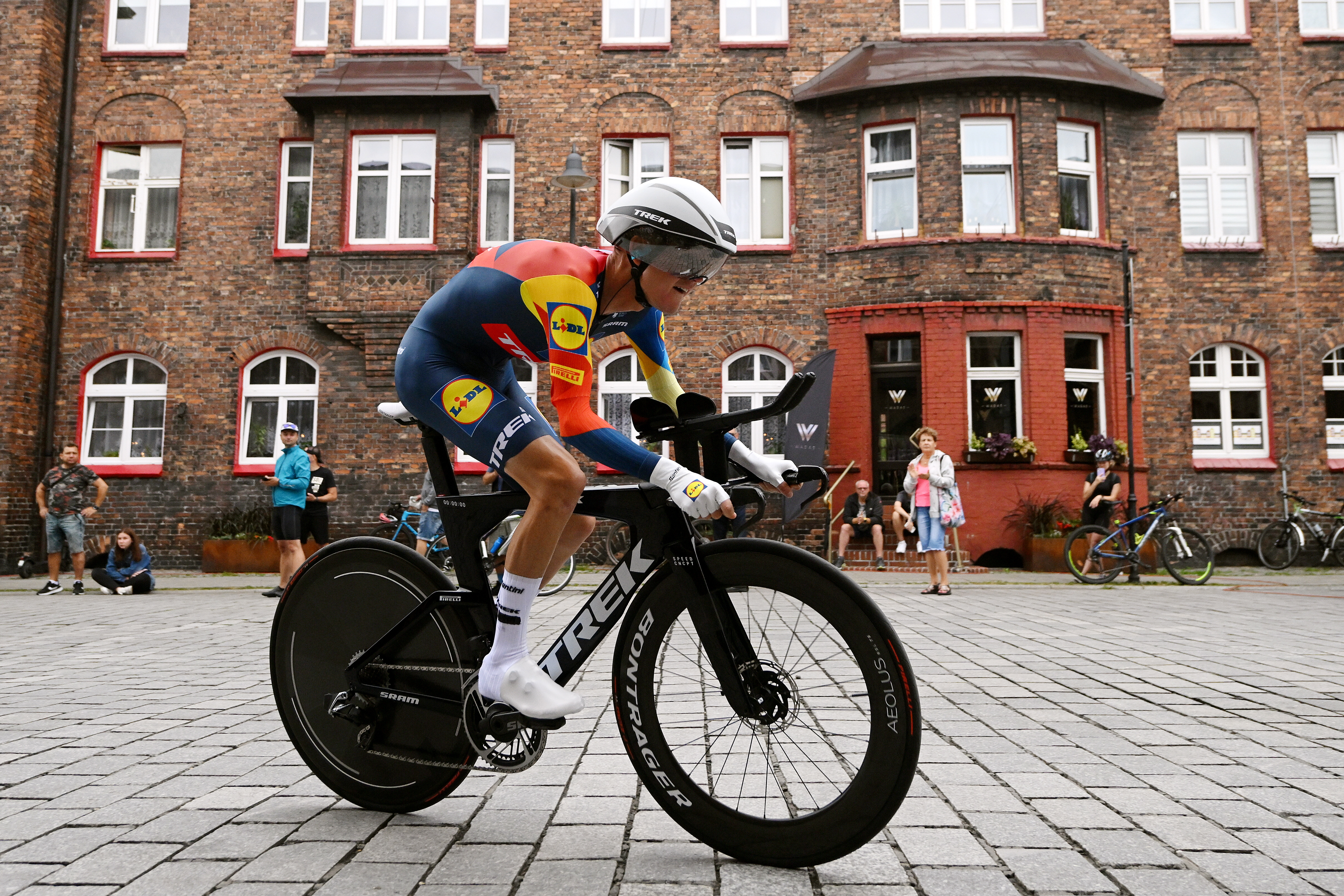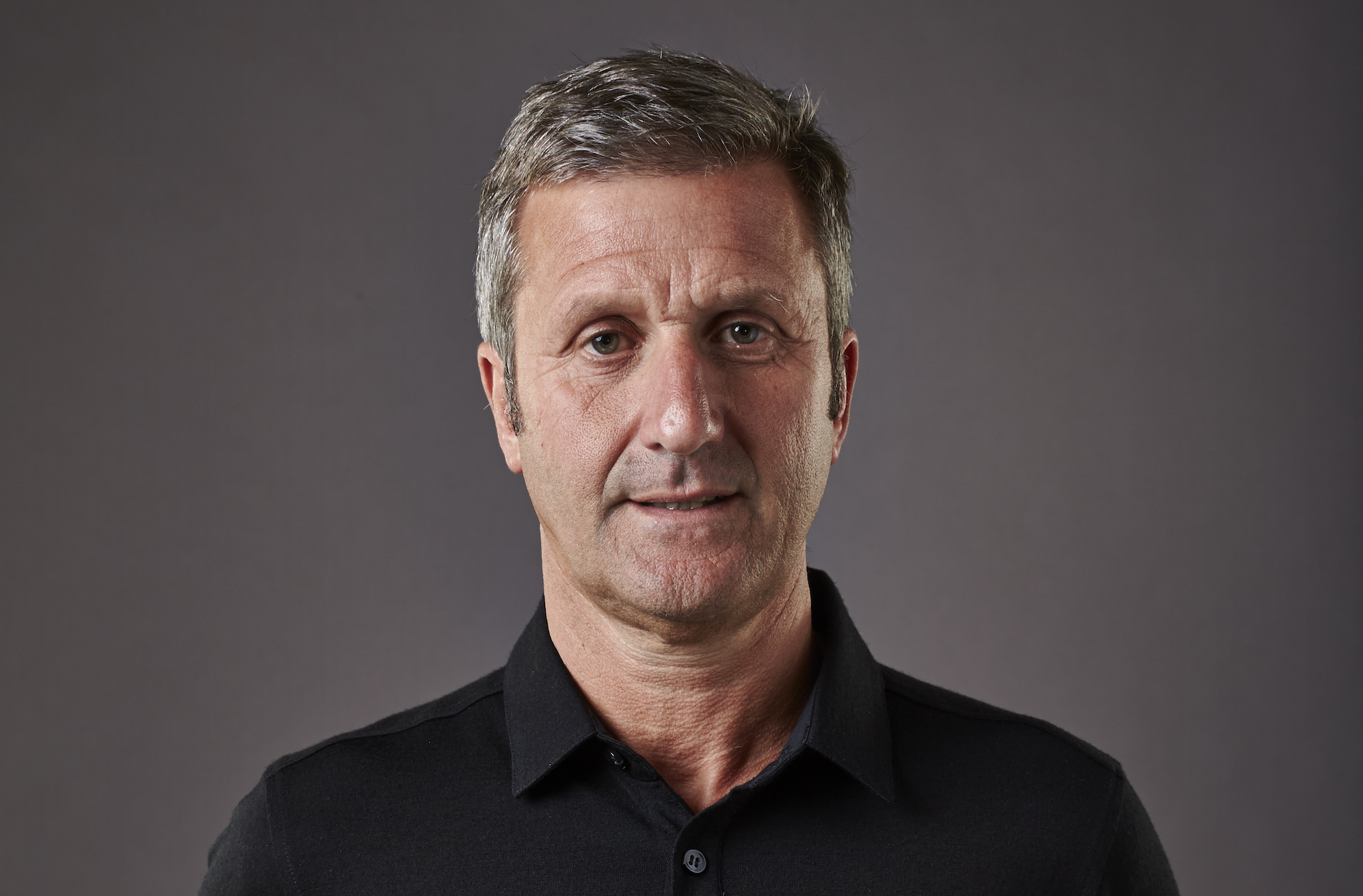WADA hopes to use artificial intelligence to catch dopers
Is AI the key to tracking down the cheaters?


For years, anti-doping authorities have struggled against the ever-evolving campaigns cheaters use to gain an advantage.
Cycling’s history can be traced back by the developments in banned substances, from amphetamines to blood boosters and transfusions.
While those chasing the dopers have been able to evolve their methods in response to the changing tides, the use of performance enhancing drugs continues to blight the cycling world, as proven by the recent Operation Aderlass blood doping scandal.
>>> Raúl Alarcón provisionally suspended by UCI over suspected doping violation
But the World Anti-Doping Agency (WADA) is turning its eye to a new method of detecting who is using clandestine methods to gain an advantage – artificial intelligence.
WADA and the Fonds de recherche du Québec (Québec research fund) announced this week that it has handed over funding to three separate projects that will explore the possible uses of AI in the fight against doping.
Dr Olivier Rabin, the senior director for sciences and international partnerships at WADA, said: “AI is an exciting area to be explored and WADA believes there is enormous untapped potential for its use within anti-doping, particularly when it comes to the analysis of big data.
Get The Leadout Newsletter
The latest race content, interviews, features, reviews and expert buying guides, direct to your inbox!
“In time we think it could have a hugely positive impact.”
Dr Rabin added: “These three complementary projects will help shed some light on the extend of AI’s potential in the anti-doping context and we are pleased to be able to support what we hope will be important pieces of research.”
WADA’s innovations in anti-doping in the last few decades have included out of competition tests, introduced in 1994, the Therapeutic Use Exemption (TUE) system and the athlete biological passport.
But now the agency is looking to AI as the next step in the ongoing struggle against dopers, with research being carried out into both potential uses for the technology and how it will be viewed by athletes and the public.
The first of these projects is with Dataperformers, a company founded in Montreal, Canada in 2013, in collaboration with a WADA-accredited lab in Paris.
This research will explore the possibility of using AI to detect the use of prohibited substances and methods.
If successful, artificial intelligence could be used to analyse data collected through WADA’s athlete biological passport programme, which currently uses and ‘adaptive model’ algorithm to determine whether an unusual test result is the result of a normal physiological condition, or related to performance enhancing drugs.
The second project WADA is funding will be carried out by Element AI, also based in Montreal, which will explore the risk of doping in athletes through the technology and then develop a sampling and testing method based on algorithms.
>>> UCI to explore ‘new avenues’ to step up fight against doping
Finally, the Centre for Genomics and Politics at McGill University in Montreal will look into how using AI to combat doping would be viewed by different stakeholders, in the hopes of guiding conversations between WADA, other anti-doping organisations, athletes and the public.
Chief scientist of Québec, Dr Rémi Quirion, said: “It is hoped through these three projects that we will raise the understanding of the impacts that AI could have on the fight against doping, both technologically and socially.”

Thank you for reading 20 articles this month* Join now for unlimited access
Enjoy your first month for just £1 / $1 / €1
*Read 5 free articles per month without a subscription

Join now for unlimited access
Try first month for just £1 / $1 / €1
Alex Ballinger is editor of BikeBiz magazine, the leading publication for the UK cycle industry, and is the former digital news editor for CyclingWeekly.com. After gaining experience in local newsrooms, national newspapers and in digital journalism, Alex found his calling in cycling, first as a reporter, then as news editor responsible for Cycling Weekly's online news output, and now as the editor of BikeBiz. Since pro cycling first captured his heart during the 2010 Tour de France (specifically the Contador-Schleck battle) Alex covered three Tours de France, multiple editions of the Tour of Britain, and the World Championships, while both writing and video presenting for Cycling Weekly. He also specialises in fitness writing, often throwing himself into the deep end to help readers improve their own power numbers. Away from the desk, Alex can be found racing time trials, riding BMX and mountain bikes, or exploring off-road on his gravel bike. He’s also an avid gamer, and can usually be found buried in an eclectic selection of books.
-
 How to watch La Flèche Wallonne: Everything you need to live stream the Ardennes Classic
How to watch La Flèche Wallonne: Everything you need to live stream the Ardennes ClassicAll the broadcast information for the second of the Ardennes Classics on 23 April with Tadej Pogacar – here's how to watch La Flèche Wallonne online and on TV.
By Adam Becket
-
 Tadej Pogačar's MET Trenta 3K Carbon is one of the best road cycling helmets on the market – grab it now with 26% off at Tredz
Tadej Pogačar's MET Trenta 3K Carbon is one of the best road cycling helmets on the market – grab it now with 26% off at TredzDeals The MET Trenta features enhanced safety and performance tech including MIPS AIR and now with a whopping £80 reduction, it's a bargain buy
By Paul Brett
-
 French cyclist given 10-month suspended prison sentence for doping
French cyclist given 10-month suspended prison sentence for dopingMarion Sicot said doping formed "an integral part" of cycling
By Tom Davidson
-
 French cyclist faces suspended prison sentence and €5,000 fine in doping trial
French cyclist faces suspended prison sentence and €5,000 fine in doping trialMarion Sicot, who admitted to taking EPO in 2019, is currently on trial in France
By Tom Davidson
-
 Steroids found in pro cyclist’s anti-doping test sample
Steroids found in pro cyclist’s anti-doping test sampleAntwan Tolhoek has been provisionally suspended by the UCI while proceedings are ongoing
By Tom Davidson
-
 Jonas Vingegaard reveals he missed an anti-doping test
Jonas Vingegaard reveals he missed an anti-doping test'It's not great to have a missed test hanging over you,' says Tour de France champion
By Tom Davidson
-
 Jumbo-Visma rider Michel Hessmann suspended after positive anti-doping test
Jumbo-Visma rider Michel Hessmann suspended after positive anti-doping testThe 22-year-old's out-of-competition sample detected the presence of diuretics
By Tom Davidson
-
 Former British Cycling doctor Richard Freeman given four-year doping ban
Former British Cycling doctor Richard Freeman given four-year doping banFreeman chose not to defend himself before the anti-doping panel
By Tom Davidson
-
 'We are not cheaters' says Belgian rider Shari Bossuyt after anti-doping positive
'We are not cheaters' says Belgian rider Shari Bossuyt after anti-doping positiveThe Canyon-SRAM rider tested positive for Letrozole in an anti-doping control in March
By Tom Davidson
-
 "Failing that drug test was the best thing that had ever happened to me"
"Failing that drug test was the best thing that had ever happened to me"Abuse victim and disgraced cycling champion Geneviève Jeanson finds solace in return to bike racing
By Anne-Marije Rook